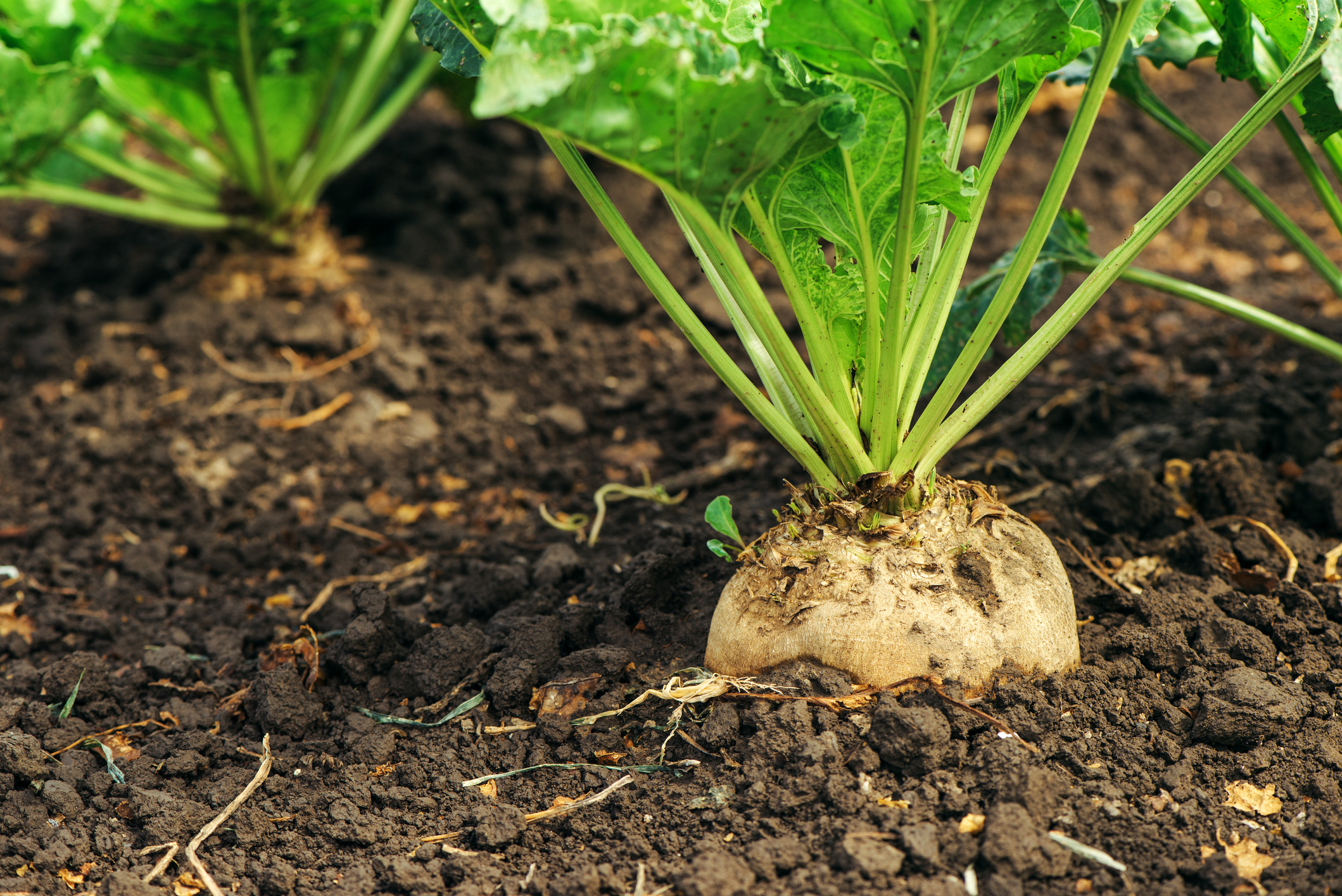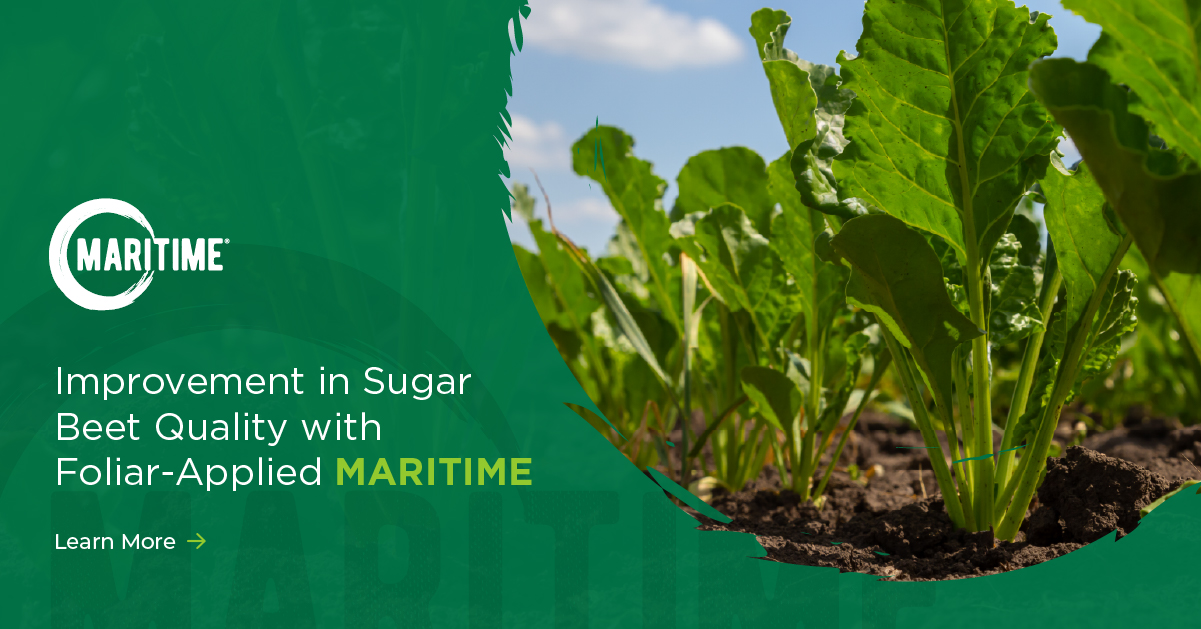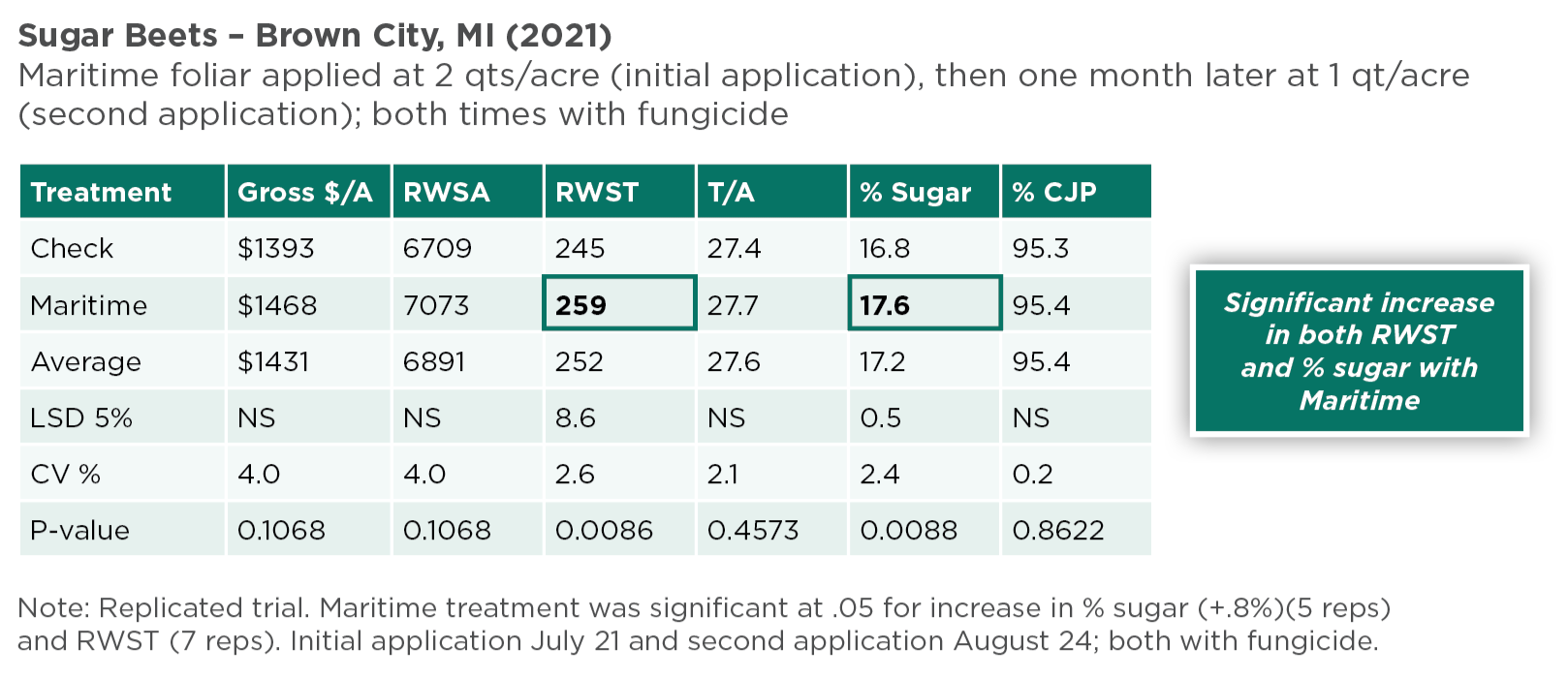 Sugar beets are a major source of the world's sugar, and the higher the sugar yield and concentration per plant, the better. In a replicated trial, researchers evaluated the ability of MARITIME to improve sugar concentration in beets when applied to the crop a few weeks before harvest. A kelp-based product, MARITIME is designed to provide plant health benefits such as improved nutrient uptake and greater ability to tolerate abiotic stress.
Sugar beets are a major source of the world's sugar, and the higher the sugar yield and concentration per plant, the better. In a replicated trial, researchers evaluated the ability of MARITIME to improve sugar concentration in beets when applied to the crop a few weeks before harvest. A kelp-based product, MARITIME is designed to provide plant health benefits such as improved nutrient uptake and greater ability to tolerate abiotic stress.
Conducted during the 2021 growing season in Brown City, Michigan, the on-farm trial was overseen by Sugarbeet Advancement, a partnership between Michigan State University, Michigan Sugar Company, sugar beet producers, and agribusiness.
MARITIME was applied twice at two different rates toward the end of the growing season. Both were foliar applications made with a leaf spot fungicide. The first application was made in late July at a rate of 2 quarts/acre, with the second application made in late August at 1 quart/acre.
At harvest, there was a significant increase in both recoverable white sugar per ton (RWST, 7 reps) and percent sugar (5 reps) in sugar beets that received the MARITIME application compared to beets that were not treated with MARITIME (p <0.05 for both measurements).
The sugar beets (variety C-G675) had been planted in early April in loamy soil. The previous crop had been corn, which was plowed. After freezing temperatures early and a dry spring, there was good weather for the remainder of the growing season. Harvest was in late September.
The fertilizer program in this trial was 200 pounds/acre of potash applied in the fall, 300 pounds/acre of 33-0-0 applied pre-plant, and 10 gallons/acre each of 10-34-0 and UAN 28% with 2 qts/acre of manganese and 1 qt/acre of boron applied 2x2.
Learn more about Maritime by downloading the MARITIME booklet.








